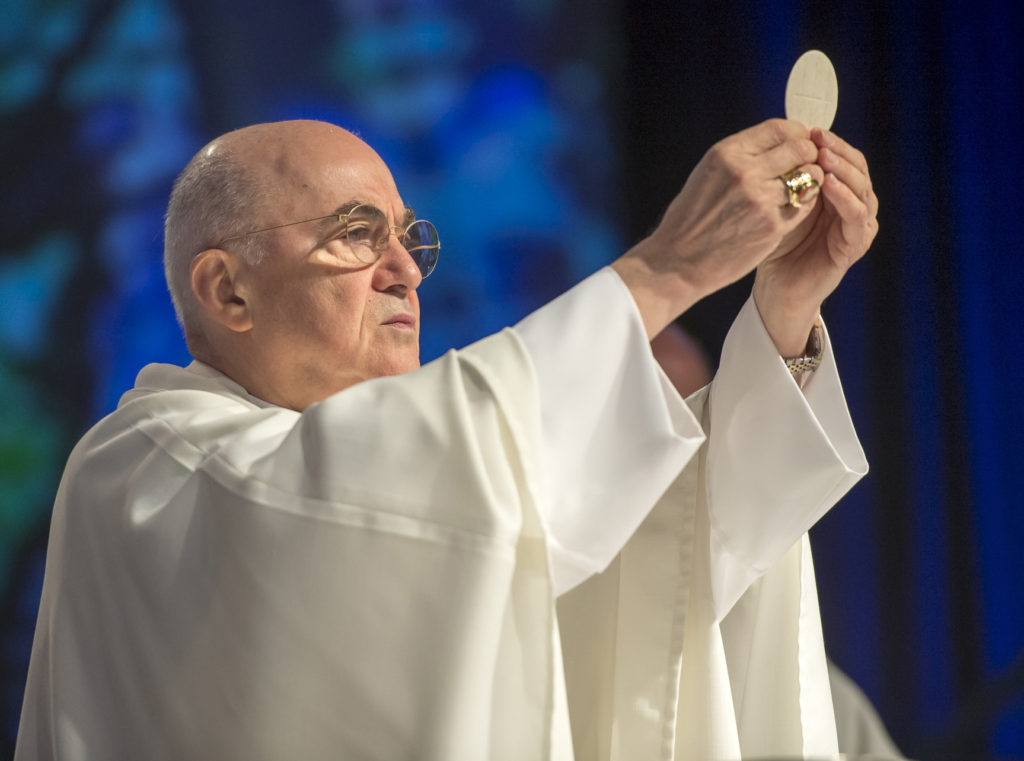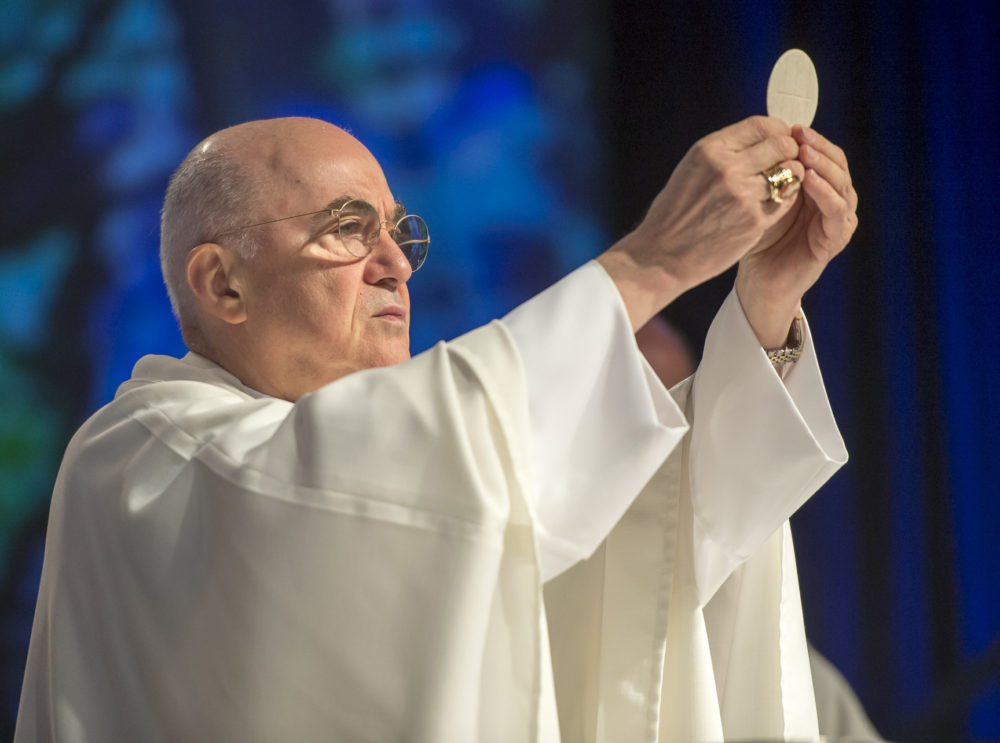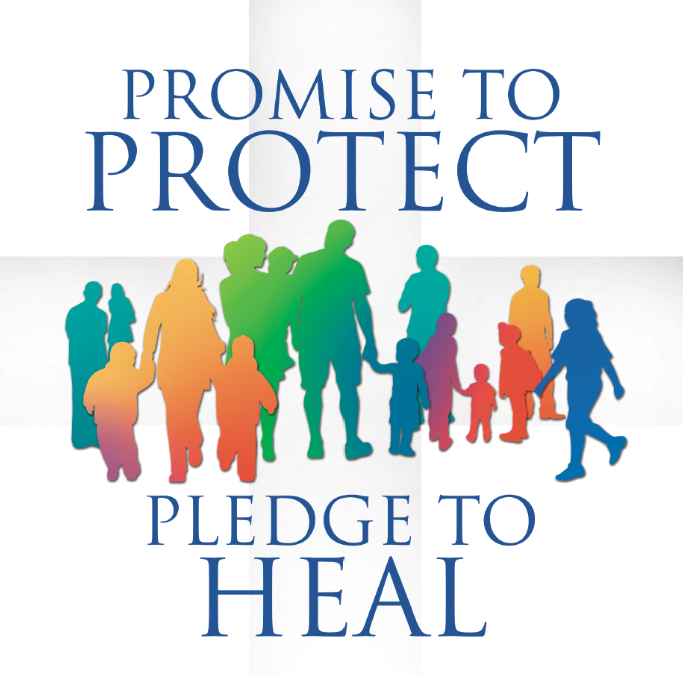
Office of Child and Youth Protection
The Diocese of Phoenix encourages anyone who has been a victim of child sexual abuse or knows of any abuse by any employee or volunteer of the Roman Catholic Church to come forward by reporting to law enforcement, the Department of Child Safety and the Office of Child and Youth Protection.
Safe Environment Training
The mission of the Safe Environment Training Office is to prevent sexual, physical or emotional abuse and/or neglect of children and young people through continued education, building awareness, and maintaining a commitment to keeping all children and young people safe.
Bishop Thomas J. Olmsted issued a statement Aug. 27 asking that the questions raised by Archbishop Carlo Maria Viganò, former nuncio to the United States, in a letter published by two Catholic media outlets, “be taken seriously and his claims be investigated thoroughly.”
“Although I have no knowledge of the information that he reveals in his written testimony of Aug. 22, 2018 so I cannot personally verify its truthfulness, I have always known and respected him as a man of truthfulness, faith and integrity,” Bishop Olmsted said in his statement.
In his 11-page letter, published Aug. 26, Archbishop Viganò accused Church officials, including Pope Francis, of failing to act on accusations of abuse of conscience and power by now-Archbishop Theodore E. McCarrick. Archbishop Viganò claimed he told Pope Francis about Cardinal McCarrick in 2013.
Archbishop Viganò, who served as nuncio to the United States from 2011 to 2016, wrote that he was compelled to write his knowledge of Archbishop McCarrick’s misdeeds because “corruption has reached the very top of the Church’s hierarchy.”
Bishop Olmsted and Archbishop Viganò met each other 39 years ago, when they were colleagues in the Secretariat of State of the Holy See in August 1979.
“I ask that Archbishop Viganò’s testimony be taken seriously by all, and that every claim that he makes be investigated thoroughly,” Bishop Olmsted said. “Many innocent people have been seriously harmed by clerics like Archbishop McCarrick; whoever has covered up these shameful acts must be brought to the light of day.”
Earlier in the day, Cardinal Daniel N. DiNardo of Galveston-Houston, president of the U.S. Conference of Catholic Bishops, said in a statement the questions raised by Archbishop Viganò “deserve answers that are conclusive and based on evidence.”
“Without those answers, innocent men may be tainted by false accusations and the guilty may be left to repeat the sins of the past,” the cardinal said.
Cardinal DiNardo also said that he was “eager for an audience” with Pope Francis to gain his support for the bishops’ plan to respond to the clergy sexual abuse crisis.
In his statement, Cardinal DiNardo reiterated an Aug. 16 call for an apostolic visitation, working with a national lay commission granted independent authority, to investigate the “many questions surrounding Archbishop McCarrick.”
He also said he convened members of the USCCB Executive Committee Aug. 26 and that they “reaffirmed the call for a prompt and thorough examination into how the grave moral failings of a brother bishop could have been tolerated for so long and proven no impediment to his advancement.”
The plan earlier outlined by Cardinal DiNardo also called for detailed proposals to make reporting of abuse and misconduct by bishops easier and improve procedures for resolving complaints against bishops.
Cardinal DiNardo again apologized to abuse survivors and their families. “You are no longer alone,” he said.
The statement explained how since 2002, professionally trained staff have worked with the U.S. Church to support survivors and prevent future abuse. He pointed to the steps the Church has put in place in response to abuse including the zero-tolerance policy regarding clergy abuse: safe environment training in diocesan offices, parishes and schools, background checks for Church workers and volunteers working around children, victim assistance coordinators, prompt reporting to civil authorities and diocesan lay review boards.
“In other ways, we have failed you. This is especially true for adults being sexually harassed by those in positions of power, and for any abuse or harassment perpetuated by a bishop,” Cardinal DiNardo said.
“We will do better. The more she is buffeted by storms, the more I am reminded that the Church’s firm foundation is Jesus Christ. The failures of men cannot diminish the light of the Gospel.”
Portions of this report were taken from a Catholic News Service article.








